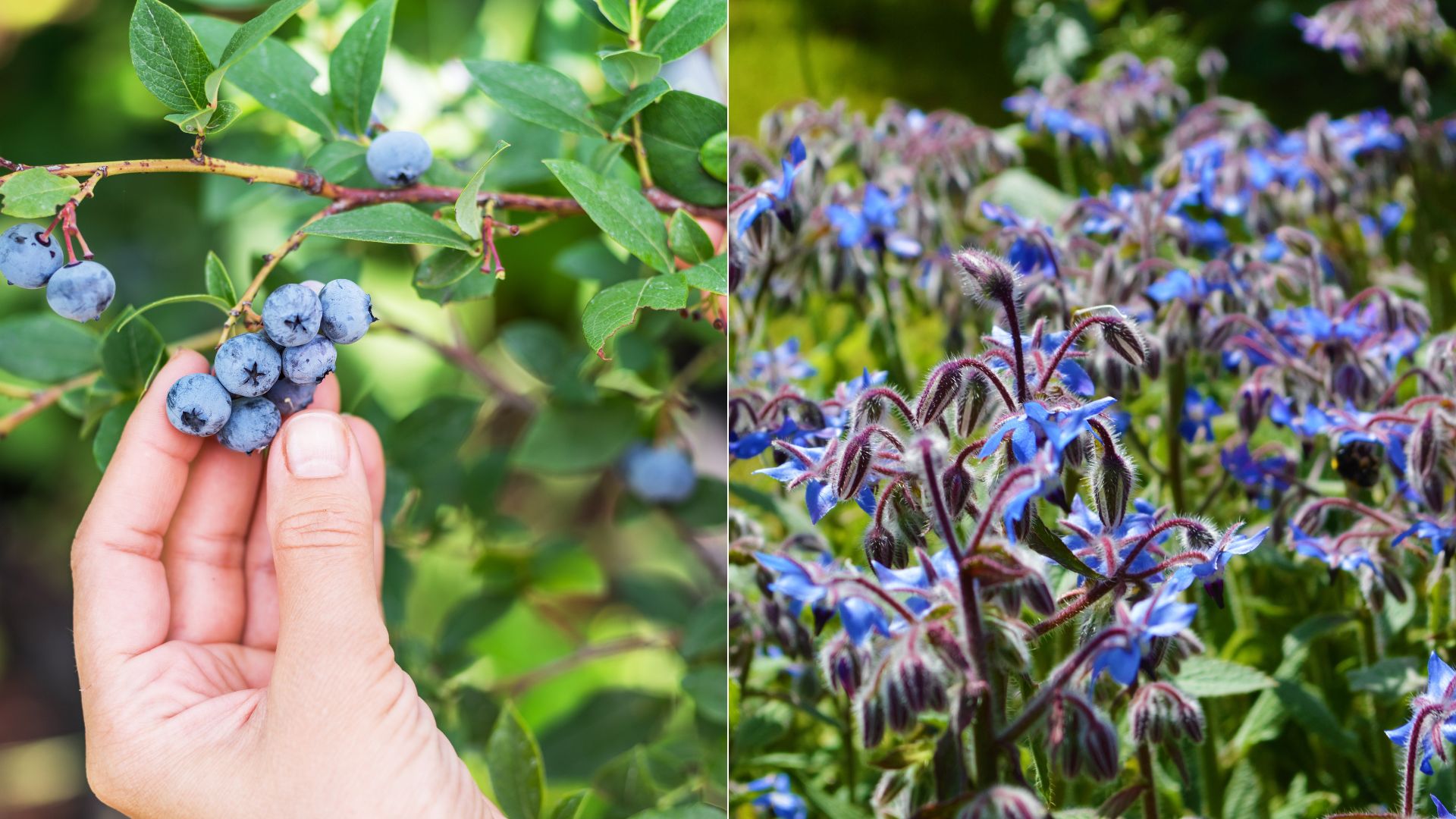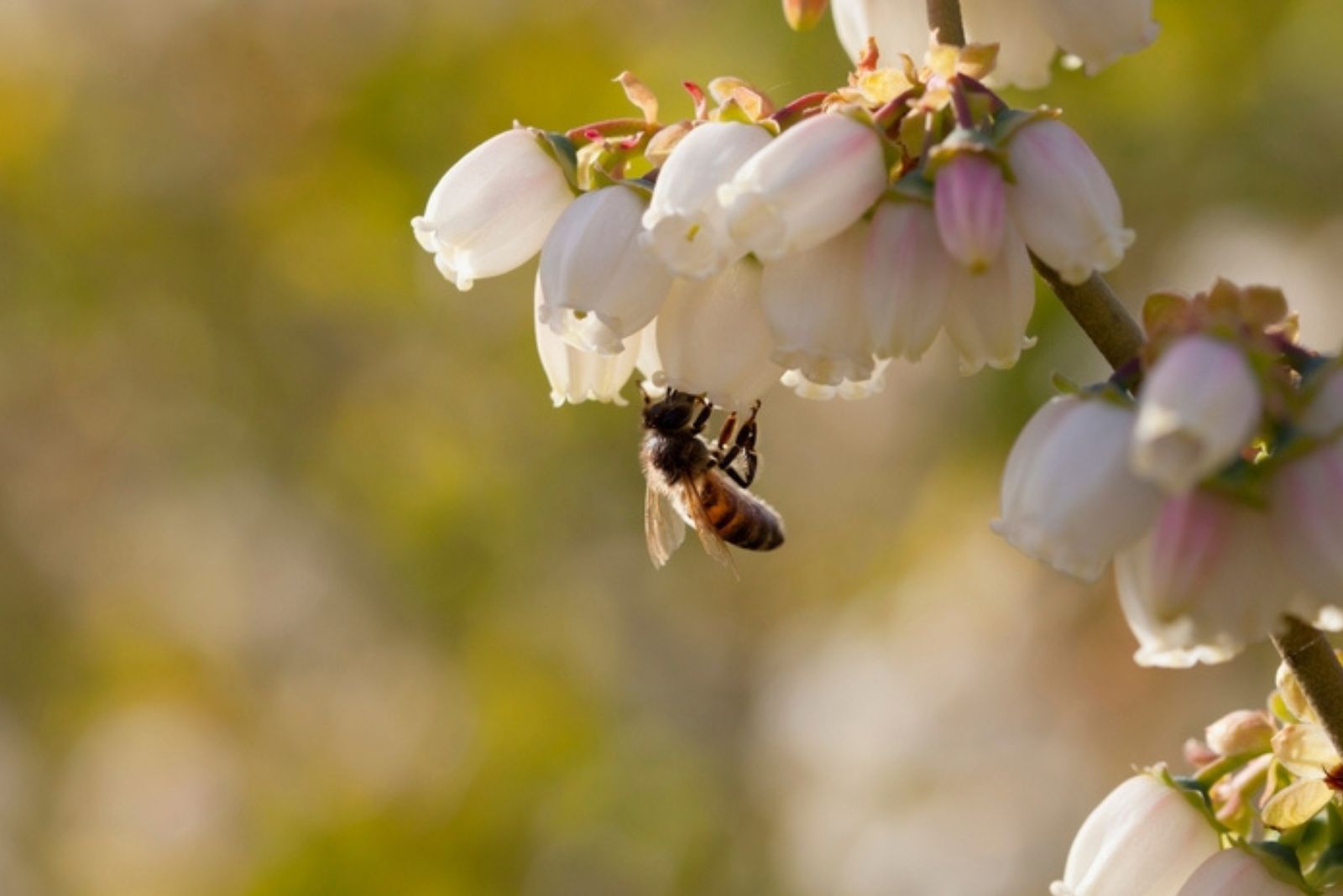Although blueberries are quite easy to grow, there are still some things that you can do to make them thrive. The secret is companion planting, which means that specific plants should be grown together in order to boost each other’s growth.
In this article, we will explore herbs that work like magic with your blueberry bush. They improve soil, keep pests away, and ensure your blueberries grow beautifully.
So, let’s get started!
Attracting Pollinators Is The Key
If you want countless berries at the end of the season, it’s crucial to have some pollinators flying around. The best way to attract pollinators is by growing herbs with mesmerizing fragrances that these little bugs absolutely love.
For instance, borage is a herb and also a beautiful edible flower that can combine perfectly with blueberries, but it also draws pollinators into the garden. Dill, for instance, attracts predatory bugs like ladybugs that will protect your blueberry bushes from aphids.
Both basil and thyme can serve as a living mulch early in the season. These will suppress weed growth, maintain soil moisture, and also attract lots of pollinators thanks to their abundance of blossoms!
Also read: Top 10 Plants For Fall Pollinators
But They Also Deter Pests
While herbs do an amazing job attracting pollinators, they can also deter pesky pests that are harmful to your blueberries. Catnip deters flea beetles, sage deters moths, and chives deter Japanese beetles and aphids.
Blueberry bushes often get attacked by larvae, which is where sage, thyme, and basil jump in to help. They repel flies, thus protecting your bushes from annoying larvae.
When planting these, make sure not to overcrowd them so that each plant can get enough sunlight and the air they require for proper growth.
So, planting herbs that both repel pests and also attract pollinators will leave you with a healthy and robust blueberry bush. Plus, this way you won’t have to spend money on pesticides!
You should also check out: Good Blueberry Companion Plants & Some Plants You Should Avoid


